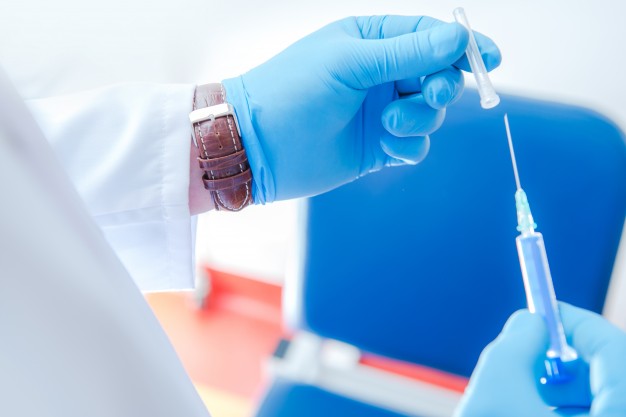According to the Spanish international public health institution Institut Catala d'Oncologia Information Centre, cervical cancer is the second most common form of cancer that causes deaths in Indian women aged between 15 and 44 years. The country reports as many as 122,000 new cases of cervical cancers every year. 67,500 women succumb to the disease which accounts for 11.1% of the total deaths related to cancer. About 55% of the people diagnosed with this type of cancer die from the disease.

How does vaccine play a role?
Most of the cervical cancers are associated with human papillomavirus (HPV). Widespread immunization can reduce the impact of cervical cancers and the cure rates are unimaginable good. It would prevent most of the cases of cancer if the girl or woman is given the vaccine before the exposure to the virus. It can also prevent vulvar and vaginal cancer in women.
What is the cause of cervical cancer?
Cervical cancer would start developing when healthy cells acquire a genetic mutation and become abnormal. The healthy cells grow, multiply and die at a controlled and set time. The cancer cells, however, do not. They invade the nearby tissues and can even spread to the other parts of the body.
It is quite certain that HPV has a role to play in it. HPV is very common with most women with the virus do not develop cervical cancer. Thus there are some other factors as well which would determine if a person develops cancer.
What are types of cervical cancers?
The two main types of cervical cancers are as follows:
Squamous cell carcinoma - These develop in the flat and thin squamous cells that line the outer part of the cervix that projects into the vagina. Most of the cervical cancers belong to this particular type.
Adenocarcinoma - These cancers develop in the glandular cells which have a column shape and line the cervical canal.
Both these types of cells can be involved in cervical cancer at times. However, cancer would rarely occur in the other cells of the cervix.
Who should be taking the vaccine?
The HPV vaccines are recommended for girls and boys starting from the age of 11. It would be ideal for them to receive the vaccines before they are exposed to sexual contact of some type. The teenagers and young adults who start to receive the vaccines later should continue the vaccinations from the ages 15 through 26. Three doses of the vaccines should be taken continuously. The vaccines have been approved for both males and females from the ages of 9 to 45.
What are the benefits of the vaccine?
The vaccine would protect the individuals from the different strains of HPV. However, it would not help you with an existing HPV infection.
What are the different vaccinations available?
The oncogenic antigens help to combat different strains of HPV. These are:
1. Cervarix - The medication can prevent cervical cancer and also prevent certain precancerous lesions of the cervix. Cervarix can prevent the infections caused by HPV 16 VLP (virus-like-particle) and HPV 18 VLP. The HPV types 16 and 18 are responsible for causing about 70% of all the cervical and cancer cases.
Each 0.5 mL of the dose would contain a sterile preparation of 20 micrograms of HPV type 16 L1 protein and 20 micrograms of HPV type 18 L1 proteins.
Three separate 0.5 mL injections need to be taken, the second one 1 month after the first and the third dose 6 months after the first. A little relaxation can be allowed.
2. Gardasil - The medication is a vaccine, that can prevent the diseases caused by HPV types 6, 11, 16 and 18. The types 6 and 11 are responsible for causing genital warts in boys and men. The vaccine helps the immune system to prevent HPV infection.
Each 0.5 mL of the dose would contain about 20 micrograms of HPV 6 L1 protein, 40 micrograms of HPV 11 L1 protein, 40 micrograms of HPV 16 L1 protein and 20 micrograms of HPV 18 L1 proteins.
Three 0.5 mL injections are required. The second dose needs to be administered 2 months after the first and the third 6 months after the first. They need to be taken exactly according to the recommendations of the doctor.
Would there be any side effects of the vaccine?
The effects would usually be mild. Just like most other injections, the site might have swelling, soreness and redness. Sometimes dizziness or fainting might occur after the injection and it is advised to remain seated for 15 minutes to reduce such risks. Headaches, fatigue, nausea or weakness might occur, in addition to those.
HPV spreads through sexual contact - vaginal, oral or anal. It is important to use a condom every time while having sex. Also, unhealthy habits, like smoking, might raise the risks of cancer. It is important to screen for cervical cancers regularly through the Pap test, beginning at the age of 21. It is important to seek immediate medical attention if any symptoms of cervical cancer are seen.